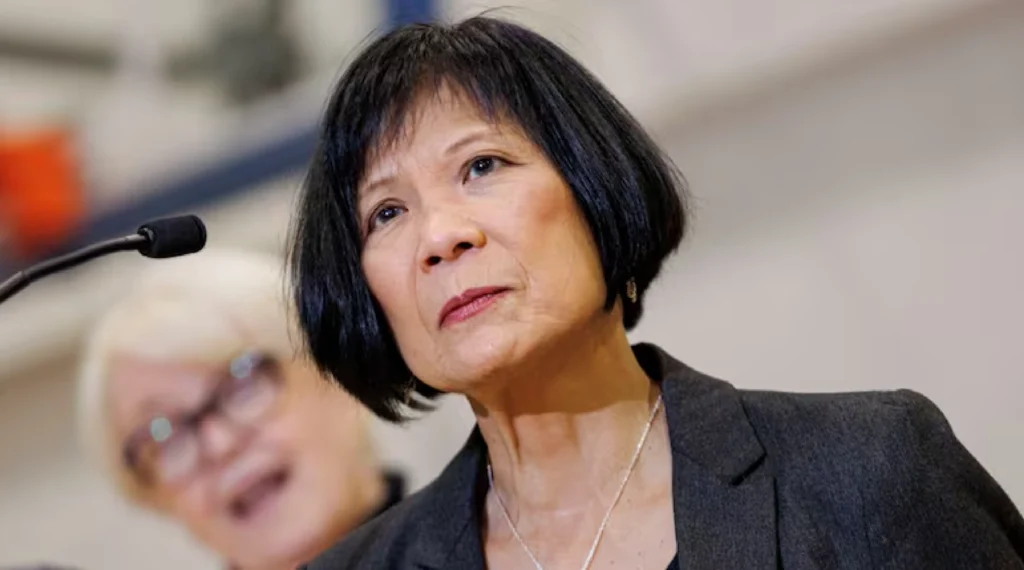Toronto residents are bracing for another Toronto property tax financial blow in 2025 as Toronto property taxes rise yet again. This increase, under Mayor Olivia Chow’s leadership, adds to the burden on homeowners already grappling with soaring living costs. While the official narrative points to funding essential services, many are questioning whether these hikes stem from government inefficiencies and mismanagement.
2025 Toronto Property Tax Increases: A Strain on Homeowners
The city’s 2025 Toronto property tax hike totals 6.9%, combining a 5.4% increase in residential property taxes and an additional 1.5% levy for the City Building Fund. For a home assessed at the updated average value of $1,200,000 in Toronto, this translates to an extra $480 annually. Over the past two years, Toronto property taxes have increased by a staggering cumulative 16.4%, adding substantial strain to homeowners’ budgets. Though the city claims this is necessary to address budget shortfalls, many homeowners are left wondering whether these funds are being spent efficiently or wasted on questionable priorities.
Government Spending vs. Homeowner Reality
The justification for these increases lies in supporting public transit, affordable housing, and community programs. However, critics argue that the city’s fiscal mismanagement has left taxpayers footing the bill. Toronto’s growing debt, combined with ballooning administrative costs, raises concerns about whether homeowners are being forced to pay for systemic inefficiencies rather than meaningful improvements.
2025 Toronto Property Tax Impact on Toronto’s Real Estate Market
The rising Toronto property tax burden is expected to have significant repercussions for Toronto’s residential real estate market. The following effects are particularly concerning:
- Decreased Home Affordability: Higher Toronto property taxes add to the carrying costs of owning a home, potentially pricing out prospective buyers.
- Slower Market Activity: Sellers may hesitate to list their properties, anticipating reduced buyer interest due to increased expenses.
- Pressure on New Developments: Developers could face challenges passing additional costs onto buyers, potentially stalling new construction projects.
These factors may contribute to a stagnating or declining market, particularly in a city already facing affordability issues.
Residential vs. Other Property Classes
While residential Toronto property taxes are rising by 5.4%, other classes such as multi-residential and commercial properties face smaller increases at 2.7%. This uneven distribution raises questions about fairness, as homeowners appear to bear a disproportionate share of the burden. The focus on residential taxes may further discourage homeownership in an already strained housing market.
The City Building Fund: A Necessary Investment or Misstep?
The 1.5% City Building Fund levy is earmarked for transit and housing projects. While these investments are critical, skeptics argue that the fund’s implementation lacks transparency. Homeowners have little assurance that their contributions will be used effectively, especially given past delays and cost overruns in major infrastructure projects.
Comparing Toronto Property Tax to Other Cities
Despite the increases, Toronto’s property tax rates remain among the lowest in Ontario. However, this is little comfort to residents facing rising costs across the board. Critics suggest that the city’s comparatively low tax rates have led to chronic underfunding of services, creating a cycle of short-term fixes and long-term financial instability.
What Homeowners Should Know
As Toronto property taxes rise, homeowners need to be aware of the following:
- Monthly Impact: For the average home, the increase amounts to approximately $40 more per month. While seemingly small, this adds up alongside other rising costs.
- Budget Allocation: The funds are slated for public transit, affordable housing, and community programs, but questions remain about the efficiency and accountability of these expenditures.
- Future Increases: With no clear plan to address systemic inefficiencies, residents may face continued hikes in the coming years.
Conclusion: A Challenging Path Ahead
Toronto’s 2025 property tax hike underscores the financial pressures facing the city and its residents. While the government frames these increases as essential for maintaining services, many homeowners view them as the result of wasteful spending and poor planning. As Toronto property taxes rise, the Toronto real estate market faces mounting challenges, potentially deterring buyers and stalling new developments. Homeowners must prepare for a difficult road ahead, balancing rising costs with the uncertain benefits of these tax hikes.



